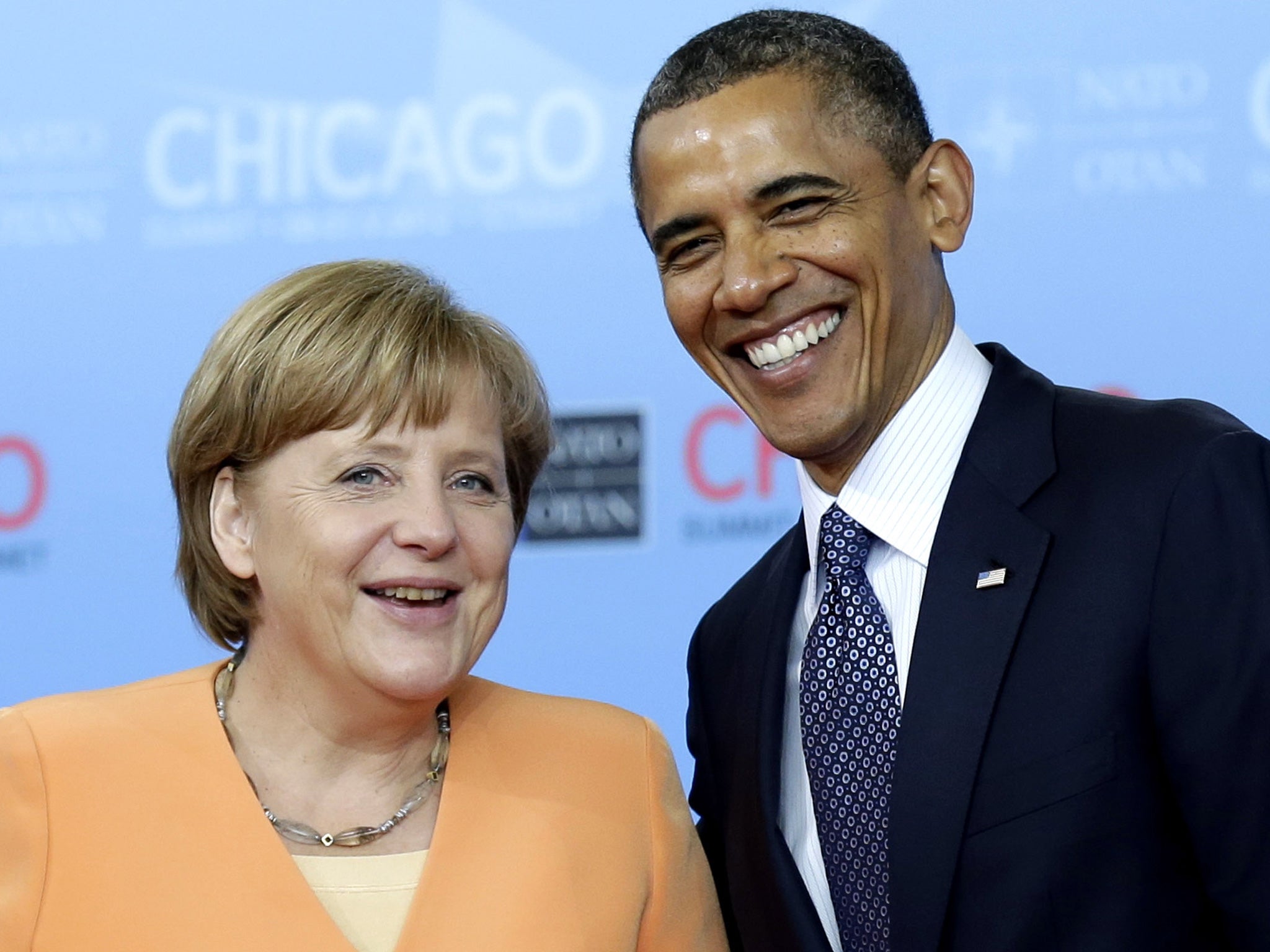US-Europe harmony 'vital for British revival hopes'
CBI chief says Obama and EU must forge free-trade pact 'or risk looking back in regret'

A free-trade agreement between the EU and the US is vital for long-term economic recovery in Britain, according to the CBI.
Director-General John Cridland said such a deal would eliminate tariffs, liberalise goods and services, harmonise regulation, promote investment and set benchmark standards for trade.
In a hard-hitting speech published today, he called on US and EU politicians to act now and avoid the risk of looking back with regret in four or five years' time.
"President Obama and the EU's political leaders need to grab the bull by the horns," Mr Cridland said. "We need to be mature and resist the siren calls of protectionism and look long-term.
"The best way of creating jobs and stimulating growth is by eliminating the tariffs and harmonising the regulation which holds back businesses on both sides of the Atlantic."
He pointed out that the European Union is changing rapidly and that the UK must carve out a new global trading role for itself, adding that the UK cannot afford to miss out on opportunities to use the EU to help rebalance its fragile economy towards exports.
In particular, the UK should use its world-class reputation in professional and financial services, pharmaceuticals and creative industries. "The EU must be the launch pad for UK businesses to trade with the rest of the world, carving out a new global role for ourselves," Mr Cridland said.
He added that the UK's 60m customer base is not big enough to attract major US trade deals, which instead seek access to the 500m customers across the EU.
But that means UK businesses adapting to the requirements of the eurozone. "We need to recognise and adapt to the realities of the multi-speed Europe which is emerging," Mr Cridland said.
"The fallout in the eurozone from the debt crisis is not just forcing through rapid political and financial integration, it is also forcing all countries to fundamentally rethink the EU's wider purpose and deal urgently with the sort of structural flaws Europe has ignored for decades."
While the EU and the US have relatively open economies, there are examples of obstacles to trade in many sectors. For example, the transatlantic chemicals industry has low tariff levels yet pays more than €500m in customs duties each year.
Meanwhile, those logistics firms which trade in the EU are forced to deal with 27 different customs processes and costs.
The CBI said these 'unseen' barriers cost businesses across a whole range of industries, with one study identifying up to €122bn in potential gains being possible for the EU every year if some regulations were aligned. The CBI is set to launch a major project to examine how the UK can retain its position as a leading location to do business globally. The study is expected to report its findings in mid-2013.
Meanwhile, small firms have warned British banks that they have a lot of work to do rebuild trust. John Walker, national chairman of the Federation of Small Businesses, criticised the banking industry for pushing many businesses to the wall through mis-selling financial products.
He added that banks are still failing to provide the finance which companies need.
Subscribe to Independent Premium to bookmark this article
Want to bookmark your favourite articles and stories to read or reference later? Start your Independent Premium subscription today.

Join our commenting forum
Join thought-provoking conversations, follow other Independent readers and see their replies